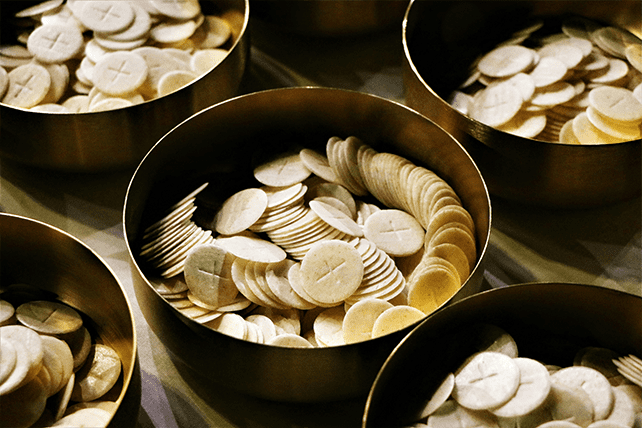The Church of England has released a statement clarifying its stance on whether gluten-free wafers and non-alcoholic wine can legitimately be used for Communion following reports that it had banned both.
On Sunday (Feb. 9), The Telegraph reported that “Church guidance makes clear that bread must be made from wheat flour and wine must be the fermented juice of the grape in order to be consecrated as part of the service.”
The Telegraph went on to report that some felt that the apparent exclusion of people who cannot consume gluten from the sacrament is an “injustice.”
Rt. Rev. Michael Ipgrave, the Bishop of Lichfield and chairman of the Church’s Liturgical Commission, responded to this criticism, saying that “receiving holy communion in one kind in a case of necessity is not an ‘exclusion’ but full participation in the sacrament, as often practised in the communion of the sick, or with children.”
RELATED: Justin Welby Resigns as Head of Church of England Following Damning Report on Sex Abuse Cover-Up
“Indeed, even believers who cannot physically receive the sacrament are to be assured that they are partakers by faith of the body and blood of Christ, and of the benefits he conveys to us by them,” Ipgrave added.
Following The Telegraph’s report, several other outlets reported on the story, leading the Church of England to clarify the specifics of its ban on Communion elements not containing wheat or fermented grape juice.
On Monday, the Church of England released a statement, titled “No, we’re not banning ‘gluten-free’ bread or ‘non-alcoholic’ Communion wine.”
“Contrary to recent reports following a question asked by a General Synod member, the Church of England is not banning ‘gluten-free’ wafers nor ‘non-alcoholic’ wine at Communion,” the statement said. “Church of England churches across the country routinely offer ‘gluten-free’ bread or ‘non-alcoholic’ wine at Holy Communion.”
RELATED: Church of England To Introduce Same-Sex Blessing, as It Faces ‘Disestablishment’ Bill in Parliament
“Many professional ecclesiastical suppliers have long provided wine or bread which may contain tiny traces of alcohol or gluten which can legitimately be considered non-alcoholic or gluten free,” the statement added. “We hope this helps clarify and avoid further confusion!”

